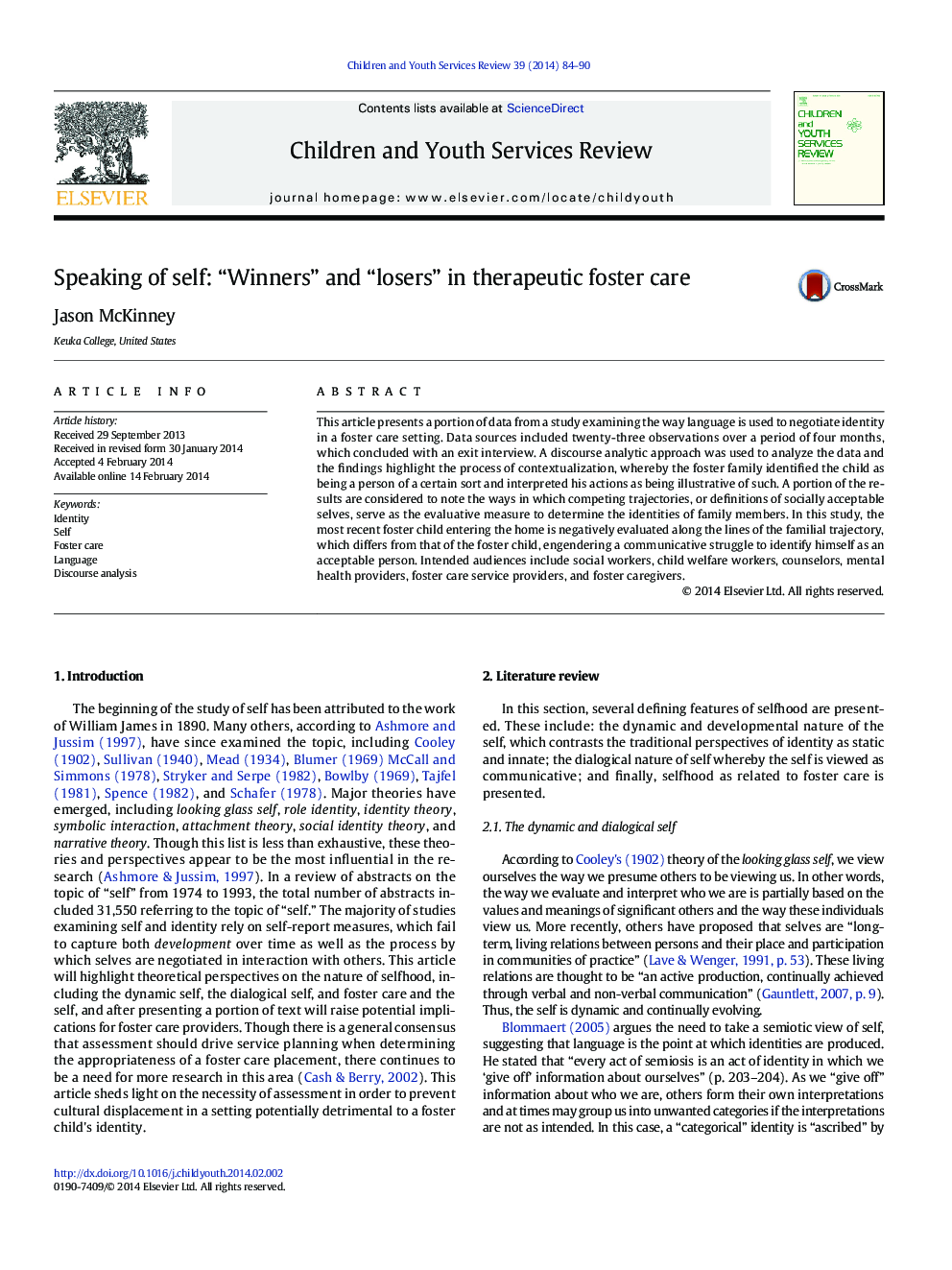| Article ID | Journal | Published Year | Pages | File Type |
|---|---|---|---|---|
| 6834395 | Children and Youth Services Review | 2014 | 7 Pages |
Abstract
This article presents a portion of data from a study examining the way language is used to negotiate identity in a foster care setting. Data sources included twenty-three observations over a period of four months, which concluded with an exit interview. A discourse analytic approach was used to analyze the data and the findings highlight the process of contextualization, whereby the foster family identified the child as being a person of a certain sort and interpreted his actions as being illustrative of such. A portion of the results are considered to note the ways in which competing trajectories, or definitions of socially acceptable selves, serve as the evaluative measure to determine the identities of family members. In this study, the most recent foster child entering the home is negatively evaluated along the lines of the familial trajectory, which differs from that of the foster child, engendering a communicative struggle to identify himself as an acceptable person. Intended audiences include social workers, child welfare workers, counselors, mental health providers, foster care service providers, and foster caregivers.
Related Topics
Health Sciences
Medicine and Dentistry
Perinatology, Pediatrics and Child Health
Authors
Jason McKinney,
